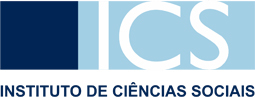The 5th International European Social Survey (ESS) Conference was held at ICS - University of Lisbon and ISCTE - University Institute of Lisbon, Portugal, from 8-10 July 2024.
Overview
The conference celebrated 20 years of the ESS providing data to the scientific community, and comes as we prepare to change data collection methodology in 2027.
Providing data measuring attitudes and behaviour to support evidence-based policies is a task that is just as important as data that supports a thriving economy.
By raising awareness of both the similarities and differences across and within European countries, and how that can change over time, the ESS provides a vital source of evidence.
In doing so, ESS data provides a crucial defence mechanism against the growth of misinformation, and helps create a body of evidence for academics and policymakers – at European, national and local level – to promote a just and fair society.
Europe faces challenges new and old: not least the effects of climate change, war in Ukraine, immigration and integration, digitalisation, pandemic-related issues, the rising cost of living, an ageing population and growing health inequalities.
It is in the shadow of these challenges that scholars who have undertaken research using ESS data were invited to join us in addressing these issues by illuminating European attitudes and the social condition, across and within countries, and over time.
This conference allowed users of ESS datasets to convene and showcase the scientific outputs that high-quality cross-national time series data can provide.
We encouraged the submission of papers that use ESS data to advocate for policy changes or implementation and/or strategies and solutions to tackle the grand societal challenges facing Europe. These challenges encompass a wide range of topics including, but not limited to, climate change, democracy, digitalisation, gender equality, health and wellbeing outcomes, immigration and inequalities.
We also welcomed analysis of ESS questions that have been fielded in Australia, Japan, South Africa and the United States as these global, comparative perspectives enrich our understanding of Europe. The analysis of ESS data in conjunction with data from other sources was also welcome.
As the ESS is a source of methodological excellence, papers related to survey methods were also be very welcome, including those that can help guide the ESS in transition to becoming a self-completion survey by 2027.
Academics and other stakeholders will initially be invited to propose sessions for the conference prior to an open call for papers.
Sponsorship opportunities
The first major international European Social Survey conference in five years brought together over 250 participants at ICS - University of Lisbon and ISCTE - University Institute of Lisbon, Portugal, from 8-10 July 2024.
Conference Organising Committee
The ESS ERIC is extremely grateful to the Conference Organising Committee. The 10 individuals who form the Committee are:
- Claire Higgins, ESS ERIC HQ, City St George's, University of London
- Dr. Eric Harrison, ESS ERIC HQ, City St George's, University of London
- Dr. Joost Kappelhof, Core Scientific Team, SCP - The Netherlands Institute for Social Research
- Dr. Michal Kotnarowski, National Coordinator, Polish Academy of Sciences
- Dr. Alice Ramos, National Coordinator, ICS - University of Lisbon
- Dr. José Santana Pereira, Venue Representative, ISCTE - University Institute of Lisbon
- Dr. Tom Smith, Scientific Advisory Board, NORC at the University of Chicago
- Dr. Theoni Stathopoulou, National Coordinator, National Centre for Social Research (EKKE)
- Stefan Swift, ESS ERIC HQ, City St George's, University of London
- Dr. Diana Zavala-Rojas, Core Scientific Team, Universitat Pompeu Fabra
Conference timetable
- 23 August 2023: Call for sessions opens
- 2 October 2023: Call for sessions closes
- Late October 2023: Sessions selected and convenors notified
- 12 December 2023: Call for papers opens
- 31 January 2024: Call for papers closes
- March 2024: Papers selected and notified | Draft programme released
- April 2024: Registration opens (early bird rate)
- 31 May 2024: Early bird registration closes
- 1 July 2024: Registration closes
- 8-10 July 2024: Conference





